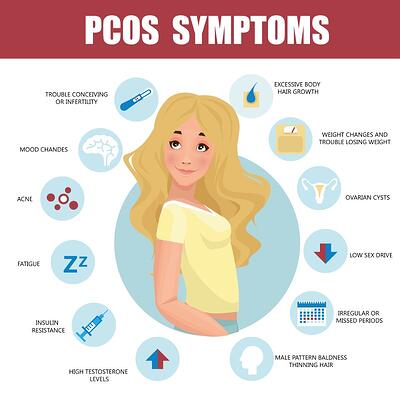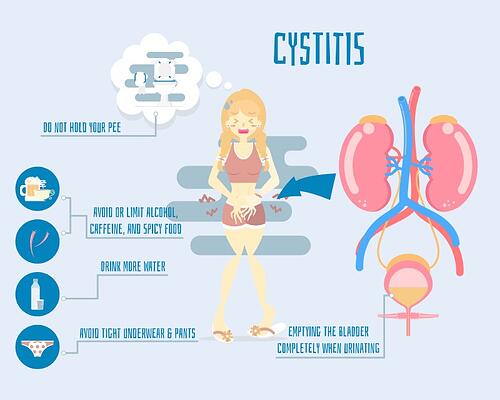When it comes to reproductive health, many women suffer from serious concerns. Your reproductive health can impact your fertility, your moods, and your energy levels. Understanding common reproductive health concerns can make it easier for you to approach your doctor about potential treatment–or even to simply understand the difference between what’s “normal” and what you may need a little more help to manage.
Concern #1: Endometriosis
When a woman suffers from endometriosis, uterine lining tissue grows elsewhere in the body, rather than staying in the uterus, where it belongs. Symptoms of endometriosis include:
- Abnormal periods
- Excessively heavy periods
- Painful sex
- Nerve pain in your legs, if uterine tissue implants in the pelvis
- Diarrhea or constipation, as well as other bowel problems
- Infertility
- Ongoing mood changes
Concern #2: Infertility
45% of healthy couples typically conceive within the first three months of trying to get pregnant. Unfortunately, some women suffer from infertility: the inability to get pregnant without assistance or, in some cases, to get pregnant at all. Most doctors will allow women to try on their own for six months to a year before diagnosing infertility; however, many common conditions causing infertility can be diagnosed and treated early, increasing the odds of successful pregnancy.
Concern #3: Cancer
Any type of cancer that occurs in a woman’s reproductive organs can impact her ability to conceive, her periods, and her hormonal regulation. Gynecological cancers include ovarian cancer, cervical cancer, uterine cancer, vaginal cancer, and vulvar cancer. Prompt, specialized treatment is critical in cases of gynecological cancer. In many cases, prompt treatment can be the difference in maintaining a woman’s fertility, her overall health, and her life.
Concern #4: Uterine Fibroids
While uterine fibroids are not cancerous, these benign tumors can cause substantial problems for many women. Women who suffer from uterine fibroids often deal with:
- Heavy bleeding during periods
- Bleeding outside of periods
- Periods that last for more than a week
- Pelvic pressure
- Backache
- Leg pains
- Pelvic pain
- Ongoing difficulty with urination or a frequent urge to urinate
A fibroid can also cause sudden, acute pain when it no longer has adequate blood supply and begins to die. Many women have uterine fibroids without symptoms; however, those who do have symptoms may seek a way to manage those symptoms, including decreasing pain or eliminating excessive bleeding.
Concern #5: PCOS (Polycystic Ovarian Syndrome)
 Women with PCOS may struggle with symptoms throughout the fertile years of their lives. While symptoms often begin in puberty, they may go unnoticed for a long time or symptoms may be attributed to other sources, especially if the patient has other health challenges or other family members suffer from the same symptoms, leading a woman to believe that these symptoms are “normal.” A woman with PCOS may:
Women with PCOS may struggle with symptoms throughout the fertile years of their lives. While symptoms often begin in puberty, they may go unnoticed for a long time or symptoms may be attributed to other sources, especially if the patient has other health challenges or other family members suffer from the same symptoms, leading a woman to believe that these symptoms are “normal.” A woman with PCOS may:
- Gain weight unexpectedly or struggle to lose weight even with normal diet and exercise.
- Suffer from poor sleep.
- Feel tired all or most of the time, regardless of how much rest or sleep they get.
- Notice unexpected, unwanted hair growth in areas where women usually don’t have excessive hair.
- Notice acne well past adolescence, including acne that may be difficult to control.
- Struggle with infertility.
- Suffer from mood swings related to hormonal cycles.
- Suffer from headaches.
The most obvious symptom of PCOS is irregular or missed periods due to a lack of ovulation. Many women with PCOS have unpredictable periods and struggle to regulate their cycle.
Concern #6: Sexually Transmitted Diseases
Sexually transmitted diseases can, if left untreated, cause a wide range of symptoms for women. Some can result in infertility. Others can lead to death if left untreated. Prompt treatment, on the other hand, can help manage or eliminate the symptoms of sexually transmitted disease. In many cases, treatment can be the difference in protecting a woman’s fertility and even her life. Sexually transmitted diseases include:
- Gonorrhea
- Syphilis
- Chlamydia
- HPV
- Herpes
- HIV/AIDS
Any time you have sexual contact with a new partner, it’s important to be tested for STDs. You should also undergo STD testing if you notice unusual symptoms, including pain during intercourse, unusual discharge, warts or sores on your genitals, or changes to your menstrual cycle that could signal an infection. Some STDs can be eradicated with medication; others may require management throughout the patient’s life. The sooner you begin managing an STD, the better the odds that you will avoid larger ramifications. Some STDs, however, can remain completely invisible, silently destroying a woman’s fertility or otherwise impacting her overall health, which is why regular testing is recommended for women who have more than one sexual partner.
Concern #7: Interstitial Cystitis (IC)
 Patients with IC often struggle with ongoing pelvic pain and a persistent urge to urinate that doesn’t go away, even when the bladder seems empty. IC frequently causes bladder pressure and pain, including pain during intercourse. Women who suffer from IC may also struggle with pain when the bladder refills itself. Relief may come when the bladder is empty or during urination. Women with IC may also urinate many different times throughout the day, even going to the bathroom as many as 60 different times during a 24-hour period. Treatment can help manage symptoms and make it easier for many women to participate in normal life events, decrease urinary frequency, and improve bladder control.
Patients with IC often struggle with ongoing pelvic pain and a persistent urge to urinate that doesn’t go away, even when the bladder seems empty. IC frequently causes bladder pressure and pain, including pain during intercourse. Women who suffer from IC may also struggle with pain when the bladder refills itself. Relief may come when the bladder is empty or during urination. Women with IC may also urinate many different times throughout the day, even going to the bathroom as many as 60 different times during a 24-hour period. Treatment can help manage symptoms and make it easier for many women to participate in normal life events, decrease urinary frequency, and improve bladder control.
If you are dealing with any common reproductive health issues, you want a caring medical team that will help manage your symptoms and identify any underlying problems that could contribute to your concerns. Contact us today to learn more about the treatment and management of women’s health issues available at West Suburban Medical Center.

